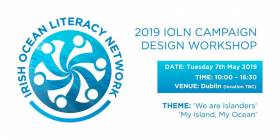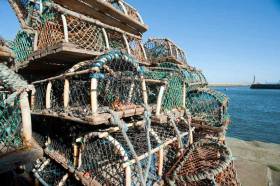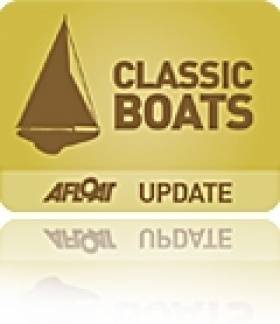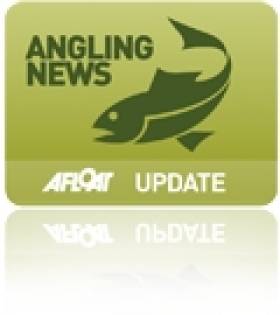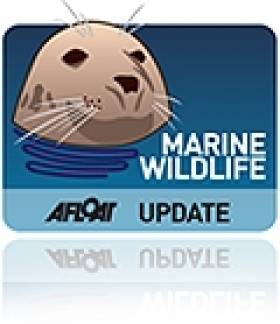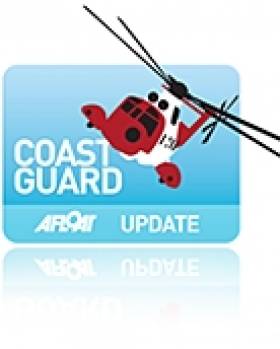Displaying items by tag: campaign
Loch Ryan: Campaign to Upgrade Major Roads taken to Scottish Parliament
In south-west Scotland, campaigners from Dumfries and Galloway have gone to the Scottish Parliament, to push the case for improvements of two of the region’s trunk roads, the A75 and A77 out of Loch Ryan.
The campaigners at Holyrood were joined by politicians and Stena Line, operator's of Belfast-Cairnryan from where in Scotland the A75 heads east to Dumfries and the A77 which leads into the M77 connecting Glasgow.
In Edinburgh the campaigners had met with the Scottish Labour leader, Anas Sarwar and Scotland’s Transport Minister Jenny Gilruth, despite her previously having said she was unavailable.
Willie Scobie, a Stranraer councillor and campaign team member said: “We put our case to Ms Gilruth for both trunk roads to be improved to dual carriageway standards, not least because of the lack of investment over decades but, more importantly, because it was crucial for both the Scottish and Northern Ireland economies."
The Daily Record has more on the campaign and as Afloat reported last year, Stena along with P&O Ferries (to Larne), had sought the support of the local council in a bid to create Scotland's first "green port" at Cairnryan, which could unlock a £25m investment.
In 2011 Stena Line opened the purpose-built Loch Ryan Port (Cairnryan) terminal having ceased the historic link with Stranraer which is located further down the loch and away from the open sea.
The relocation of port also saw the introduction of 'Superfast' twins on the shorter North Channel route to Belfast where the VT2 terminal was upgraded last month.
In an aim to introduce electric vehicle charging points, a campaign has been set up to apply this on board ferries of the Isle of Man Steam Packet.
David Dorricott from the Mountain View Innovation Centre based outside the (harbour town of Ramsey) wants people to be able to 'charge whilst you cross'.
He says the Island is behind other nearby companies, which have brought in ferry EV charging.
For more Manx Radio reports having contacted the Steam Packet Company for a response with a podcast available through this link.
EchoLive reports of an artist who has campaigned against a skyscraper development at the historic Port of Cork site has described new images of the proposed 34-storey tower as “dreadfully ugly”.
Cobh-based painter John Adams has garnered over 1,700 signatures for a petition against large-scale commercial development on the site of the Port of Cork buildings at Custom House Quay.
Tower Holdings unveiled plans yesterday for a €140m development on the site which will include a skyscraper hotel, retail units, cultural spaces, food and beverage businesses, office space, recreational areas and a micro-distillery, creating up to 800 jobs.
The building will be the tallest in Ireland, twice the height of the nearby Elysian Tower.
More can be read on this story here.
The Irish Ocean Literacy Network (IOLN) has issued its final call for a workshop in Dublin next Tuesday 6 May on how to design and develop an environmental awareness campaign.
The IOLN Design Workshop under the theme ‘We are islanders … My island, my ocean’ is being run with support from the SFI MaREI Centre, DCU Water Institute and AquaTT.
Members and interested parties are invited to join a ‘day of inspiration’ at the brainstorming and co-creation workshop for designing and developing a national campaign, working with a host of artists, storytellers and marketeers.
The morning session will be dedicated to sharing ideas, defining campaign strategy and drafting storyboards for campaign content.
The afternoon session will bring together graphic designers, professional science communicators and educators to work together to co-design and create campaign assets for different channels and mediums.
Further design and development will follow after the event in the run-up to launching the campaign next month, with a view to linking it with World Ocean Day on 8 June or SeaFest 2019 in Cork on 7-9 June.
The workshop is free for members of the IOLN, which extends a special welcome to science communicator and those with expertise and an interest in storytelling, animation, graphic design, visual scribing/graphic facilitation, videography, digital marketing and social media campaigns.
For more details and how to book your place, visit the Eventbrite page HERE.
UK Campaign To Make Static Fishing Gear Safer For Small Boats
#LobsterPots - Are lobster pots a danger to yachts? That’s the question posed by Yachting Monthly as the UK’s Cruising Association relaunches its campaign to make static-gear fishing safer for small vessels.
The CA has already received nearly 4,000 signatures on its online petition to the Department for Environment, Food & Rural Affairs (DEFRA) to seek “views regarding forceable regulation among other options” for improving the way static fishing gear is marked.
Before its original petition was shut down until after this summer’s UK general election, nearly 6,000 people had signalled their support for the initiative which also has the backing of CA patron and yachting legend Sir Robin Knox-Johnston.
The RYA has additionally launched an online reporting form for boaters to identify incidents of entanglement with poorly marked static fishing gear.
“We think it is time for everybody with an interest to work together to find a solution, particularly one that is cheap and practical for our fishermen,” said a CA spokesperson.
Yachting Monthly has more on the story HERE.
'Save Naomh Eanna' Campaign Courts TDs To Support Heritage Ship's Future
#NaomhEanna - Campaigners hoping to preserve the heritage ship Naomh Eanna have circulated a letter among Dublin TDs to gather support for their restoration plans.
Earlier this week Afloat.ie reported that the vessel, described as the 'last Irish heritage ship', is set to face the scrapheap after spending the last 28 years in a state of neglect at Grand Canal Dock.
Now the Save Naomh Eanna campaign has called on local TDs to put their weight behind a 16-week reprieve for the derelict ship so that a business plan for its restoration can be put together.
Save Naomh Eanna argues that cutting up the ship in the Grand Canal graving dock poses an environmental risk to the waters at the dock as well as a physical risk to the 200-year-old dry dock itself, listed as a protected structure.
The campaign also claims there are "irregularities" in the manner by which Waterways Ireland intends to dispose of the vessel, of which it recently took possession.
NI Anglers Take to Facebook to Save Their Salmon
#ANGLING - Northern Ireland river anglers are taking a novel approach to lobbying Stormont over salmon exploitation by harnessing the power of social networking.
According to the News Letter, the NoSalmonNets campaigners "have swapped their fishing rods for laptop computers", using Facebook to attract support for their campaign to bring an end to the offshore netting of wild salmon stocks.
As previously reported on Afloat.ie, Northern Ireland's Department of Culture, Arts and Leisure (DCAL) has called for a voluntary ban on offshore salmon fishing, following new research that shows a significant drop in their numbers in the North's rivers.
Seamus Donnelly of NoSalmonNets has welcomed DCAL's recent decision to stop issusing licences for commercial salmon nets that may "contravene European law" off Antrim's north coast, made in an effort to protect salmon stocks in the Foyle river system.
Donnelly explained that the campaign was borne from frustration at the apparent inaction by the NI Executive over the protection of salmon.
“One of the keys to our success has to be Facebook," he said. "The internet has an unlimited reach and we took advantage of that.”
The News Letter has more on the story HERE.
Irish Sea Far From 'Dirty, Lifeless' Says New Website
#MARINE WILDLIFE - The UK's Wildlife Trusts have launched a new website in an effort to redress the idea that the Irish Sea is "a dirty, lifeless" place.
As BBC News reports, the trusts' Cheryl Nicholson put down the Irish Sea's poor image, saying "nothing could be further from the truth".
"Our sea is home to so many amazing species and habitats," she added, "but sadly, after centuries of neglect, it is not in a good state. We must act now to protect the Irish Sea from the depths through to the coastal shallows."
The new website is part of a campaign by wildlife trusts throughout northwest England, Wales, Northern Ireland and the Isle of Man to establish 15 Marine Conservation Zones recommended for the area.
The zones, if officially designated, would provide "a haven for wildlife to recover and thrive", said Nicholson.
As previously reported on Afloat.ie, plans to establish such zones in the Irish Sea have been shelved till 2013 at the earliest after pressure from fishermen, boaters and other groups.
BBC News has more on the story HERE.
Doolin May Soon Get New Coastguard Station
The Irish Examiner reports that the Doolin coastguard unit is finally set to get a new coastguard station.
One of the busiest search and rescue units in the State, the Doolin unit of the Irish Coast Guard currently has to drag its boat some 2km by tractor to Doolin pier.
Much to the delight of local campaigners, the Office of Public Works is now inviting tenders for a €1.9 million dedicated coastguard facility at the pier, following the granting of planning permission by Clare County Council as part of a development plan for the area.
However, the unit's officer in charge Mattie Shannon is cautious about a start date for construction, as the Department of Transport will not be able to provide funding for the project until next year at the earliest.
Fianna Fáil TD for Clare Timmy Dooley told the Examiner: "The least the current Government can do is honour the commitment of the previous government and ensure that the appropriate finances are in place for next year."
The Irish Examiner has more on the story HERE.
Harbour Businesses Vent Frustration at DAFF
A Donegal businessman is fronting a new campaign that seeks a more positive and direct approach to supporting harbour businesses.
John Shine - who spearheads the 'Fishing for Jobs' campaign - has accused the Department of Agriculture, Fisheries and Food (DAFF) of thwarting the growth of his and others' businesses "at every turn", The Irish Times reports.
Shine and his fellow campaigners want a full policy adaptation of the 2009 McIver report on the development of business plans for harbour centres, which found a "lack of business focus" among harbour and department officials.
The report noted that existing harbour business tenants had "frustrating" relationships with the DAFF especially with regard to leases. Shine said approximately 40% of property in Killybegs harbour, which has benefited from a €50m development, is lying idle due to a "negative" approach by the DAFF.
The Irish Times has more on the story HERE.




























